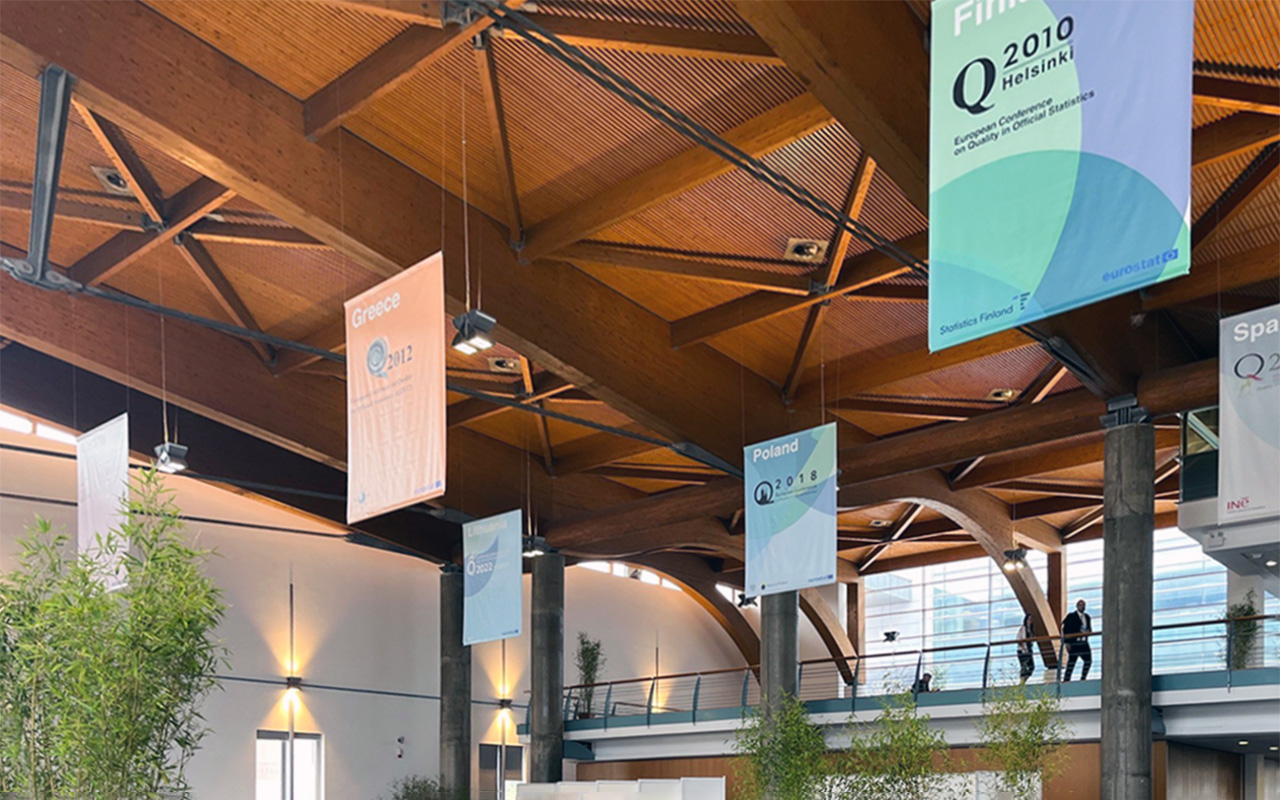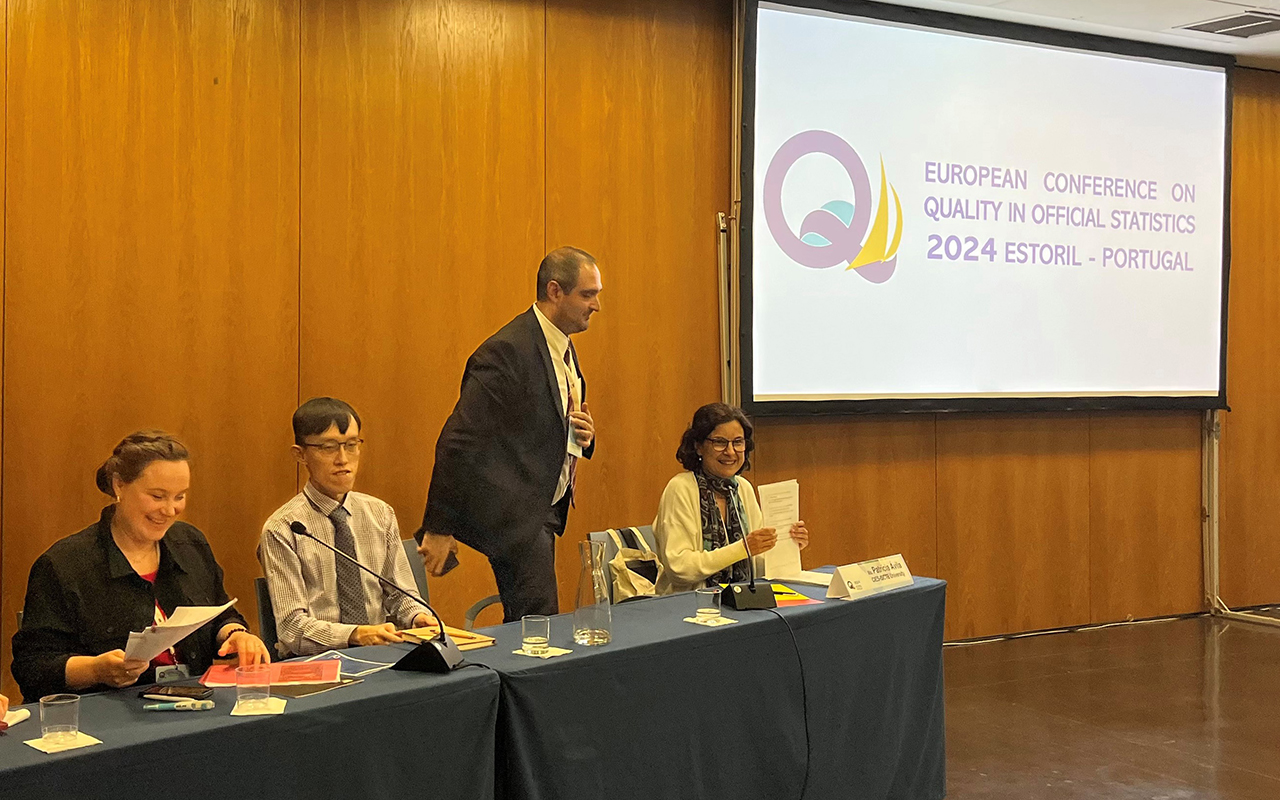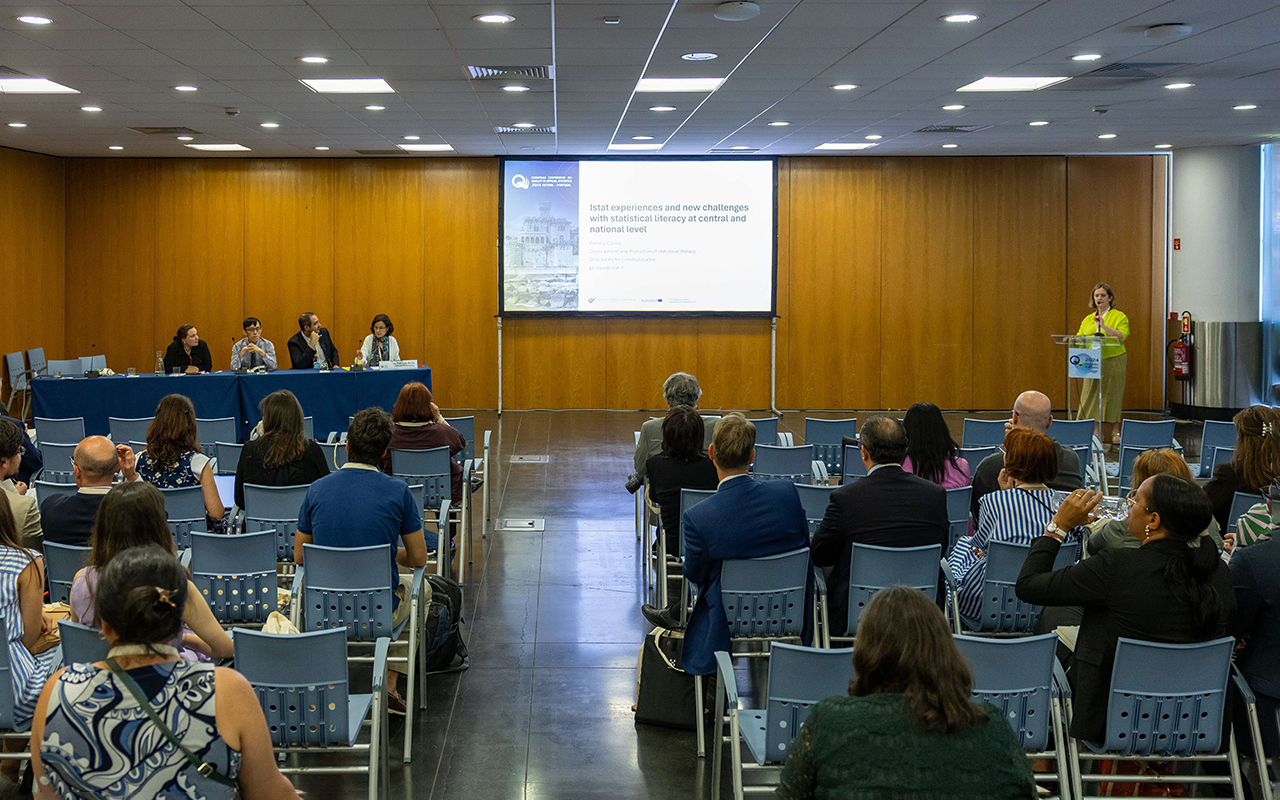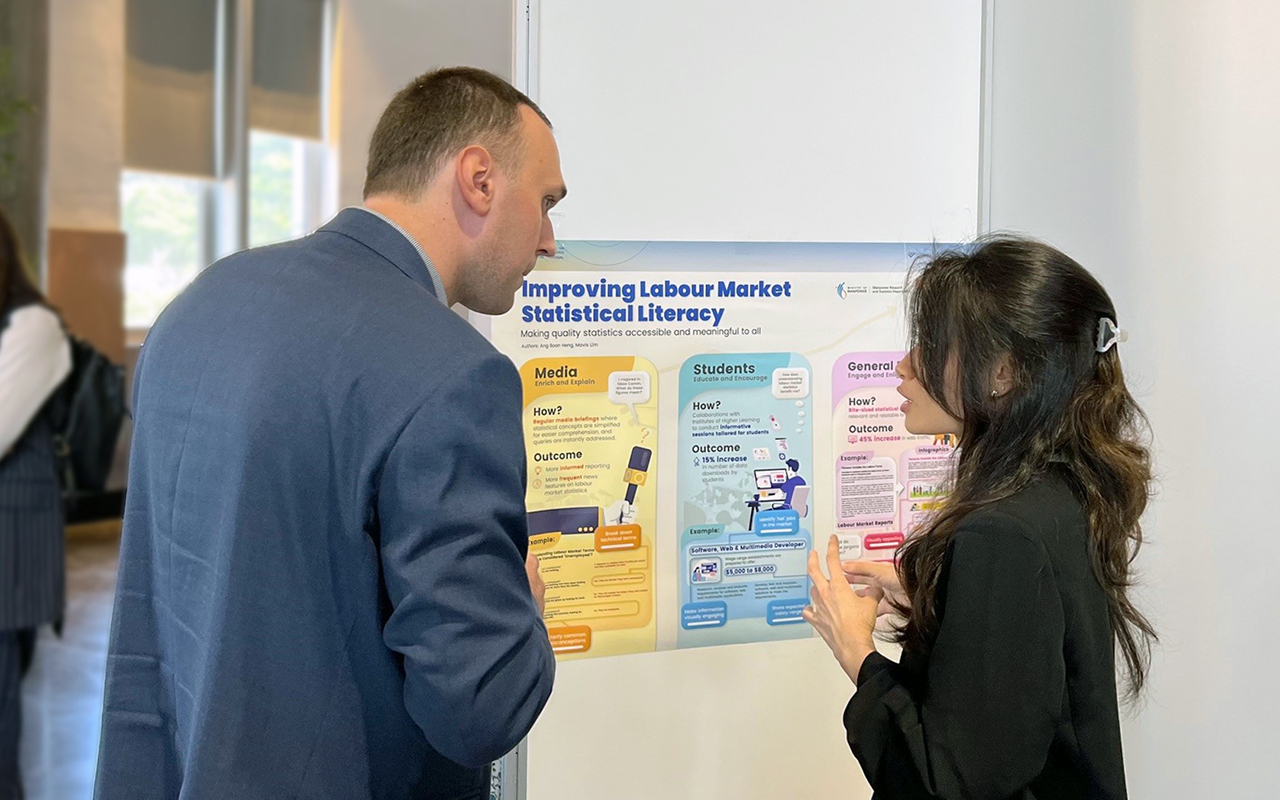
11th European Conference on Quality in Official Statistics

The 11th European Conference on Quality in Official Statistics (Q2024) — organised jointly by Statistics Portugal and Eurostat — was held in Lisbon, Portugal, from 4 – 7 June 2024. Statisticians, academics, and external stakeholders came together with the aim of facilitating the exchange of knowledge and research on emerging issues related to quality in official statistics. Focusing on the role of official statistics as a pillar for democracy, Q2024 touched on some of the most challenging issues faced by the official statistics community in today’s volatile environment. These issues include the trust of data users, science and research, and innovative methods for assuring data quality.

Our paper presentation on
‘Statistical Literacy in an Age of Misinformation’ addressed the challenges posed by a lack of statistical literacy within the society and highlighted Singapore’s efforts in tackling this issue. The new digital age has introduced a wide range of information made readily available to the general population. Providing the public with reliable statistical information can empower them to make informed decisions in their everyday lives. However, misunderstanding or misinterpreting the provided statistics can result in poor decision making and contribute to the spread of fake news. Therefore, to improve statistical literacy and curb the spread of misinformation, MRSD has established a quality framework comprising (i) verification, (ii) regulation, and (iii) education. For this framework to be effective, a thorough series of checks and procedures must be implemented by various stakeholders. This means that individuals, institutions, and governments all play a crucial role in being vigilant when consuming and sharing information.

In this same session on
‘Communication and Statistical Literacy’, we also had the opportunity to learn about the Italian National Institute of Statistics (Istat)’s experiences and challenges with statistical literacy at both the central and national levels. The issue of misinformation and biased representations as accentuated in our own sharing was also echoed in Statistics Norway’s presentation on the team’s efforts in disseminating official statistics through the media. The session sparked meaningful conversations on how statistical agencies can better support and utilise the media to disseminate quality statistics and contribute to an enlightened public discourse. These discussion topics were highly relevant to our team, especially since our poster presentation that day closely aligned with the theme of enhancing statistical literacy through more effective communication channels.

Titled ‘Improving Labour Market Statistical Literacy’, our poster presentation focused on the power of data – how we could go beyond producing, analysing, and disseminating data, to better serve society. During the poster session, we had the opportunity to converse with many other delegates, including representatives from Eurostat, the National Statistics Office of Georgia, and the Romanian National Statistics Institute. We had some fruitful discussions, and it was interesting to learn about their initiatives back home aimed at making statistics more meaningful and understandable for diverse audiences. The delegates also commended our efforts to connect with the wider public through more relatable statistical content and productive collaborations with the media and educational institutions. Their words of encouragement and affirmation were heartening for us, and these conversations provided new insights on how to further improve our existing initiatives.
The notion of ‘quality’ has always been central to our commitment as the National Statistical Agency responsible for manpower-related statistics. Q2024 has offered a valuable opportunity for us to learn from other researchers and statisticians in this aspect and explore ways to improve our statistical processes back home to further enhance data quality. We strive to apply these insights gained to our daily statistical operations and promote closer dialogue between data users and producers, ensuring quality data is accessible to all.